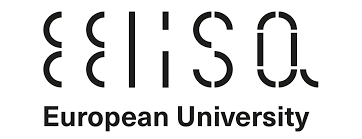Open Science and Research Data Management
Open Science and Research Data Management Contact person Prof. Caterina Sganga, caterina.sganga@santannapisa.it Dr. Francesca Di Donato francesca.didonato@cnr.it Course description The course covers all modern aspects of Open Science and provides the tools and standards required to embed Open Science in research workflows. After a brief overview of the foundations of key IP rights, data protection principles and non-personal data regimes, it focuses on the concept and application of Open Science in Horizon Europe, the ongoing reform of the research assessment system in the EU, meaning and practice of open access publishing and data FAIRification. Specific attention will be devoted to research data management, Data Management Plans, the use of existing Research Infrastructure (RI) to disseminate research data and other outputs, and the definition and implementation of the European Open Science Cloud (EOSC).The course is structured around six sessions, as detailed below. Suggested readings will be posted on a dedicated Teams channel along with the slides. Additional readings and materials may be suggested during class or upon request. Learning objectives COMPARATIVE FOUNDATIONS OF PATENT AND COPYRIGHT; PERSONAL AND NON-PERSONAL DATA REGIMES; SCHOLARLY COMMUNICATION: AN INTRODUCTION. FROM THE TRADITIONAL PARADIGM TO OPEN SCIENCE; THE OPEN ACCESS PUBLISHING PARADIGM AND FAIR DATA; RESEARCH DATA MANAGEMENT; RESEARCH INFRASTRUCTURES, THE EUROPEAN OPEN SCIENCE CLOUD AND OPEN SCIENCE PRACTICES. Course duration and period 12 hours – January-April Format Classroom; exceptionally online Prerequisites Be a holder of a doctoral fellowship at the Scuola Superiore Sant’Anna Course Link Deadline for registration Varies from term to term Who Should Attend PHD students
Open Science and Research Data Management Read More »
